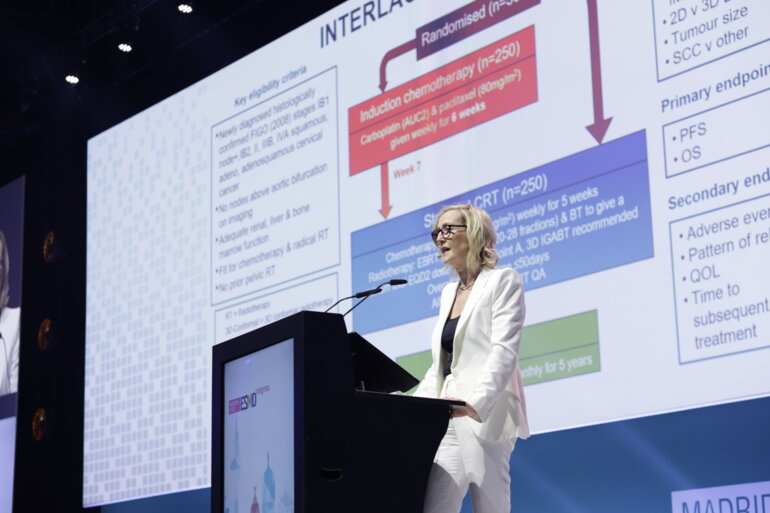
Most women report poor sexual health after a diagnosis of breast cancer
However, patients’ sexual concerns are often unaddressed in oncology, a study suggests

However, patients’ sexual concerns are often unaddressed in oncology, a study suggests

Research is ongoing to revisit the classic neoantigen approach that may better interpret the complexity of the immune system

After proof of efficacy in patients with melanoma in a clinical trial, major efforts are now directed to make the use of TILs easier and safer in clinical practice.

However, lack of OS benefit limits the clinical impact of the findings from the PSMAfore trial

Positive signals from early-phase studies suggest that newer molecular technologies may help to disclose the promises of T-cell therapies in different settings

Phase III trial findings reveal significant improvements in PFS and OS rates, although the population studied may not be wholly indicative of high-risk disease

Antitumour responses were consistent with those previously reported for a broader population of patients with advanced melanoma

Final results from the RADICALS-RT trial show that observation with salvage RT for prostate-specific antigen failure should be the current standard strategy after surgery

Recently presented results suggest that a subset of patients with early stage rectal cancer could skip pre-operative radiotherapy, thus raising some questions about the standard of care

Regulatory, practical and economic challenges are associated with implementing this personalised treatment on a larger scale, thus currently limiting its availability and accessibility to patients
This site uses cookies. Some of these cookies are essential, while others help us improve your experience by providing insights into how the site is being used.
For more detailed information on the cookies we use, please check our Privacy Policy.
Necessary cookies enable core functionality. The website cannot function properly without these cookies, and you can only disable them by changing your browser preferences.